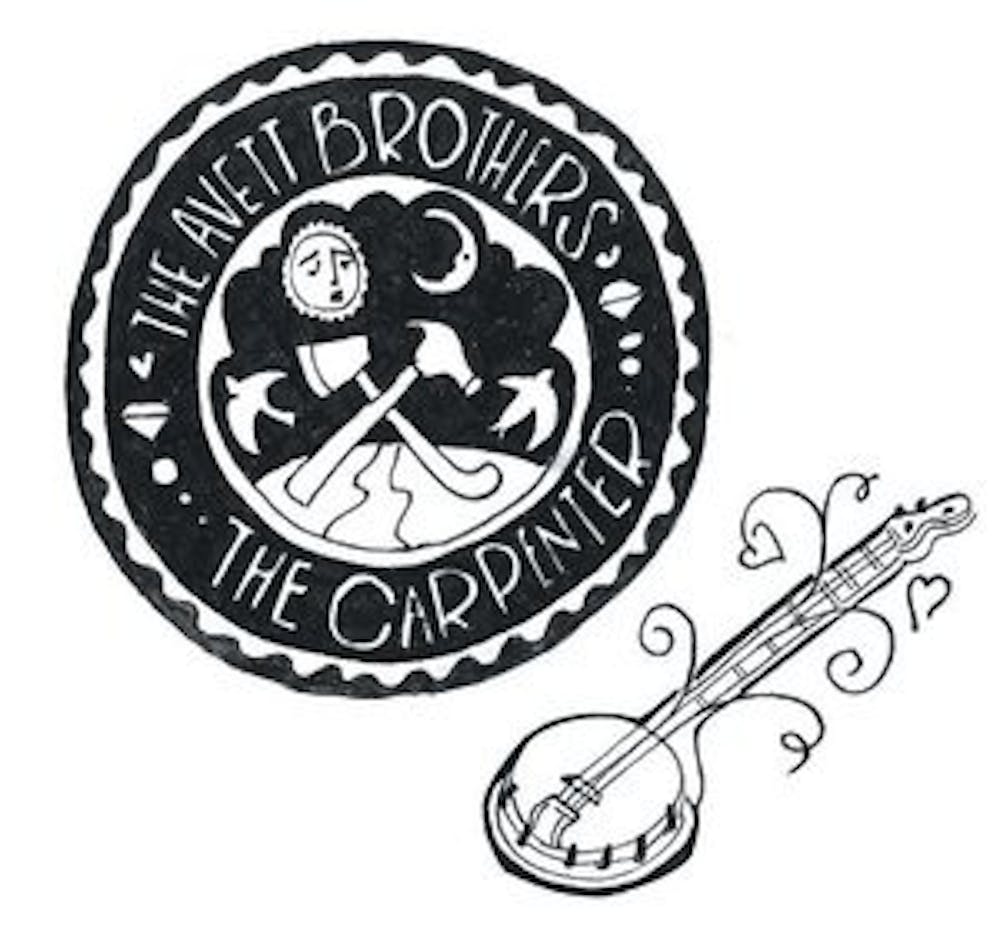The Avett Brothers have been breaking banjos and plucking heart strings since 2000. The Southern roots rock of the Avetts is manic, high-energy, warm-hearted and harmonydrenched. Their sound centers on the interplay of banjo, guitar and upright bass, but it can take the form of a soaring ballads or an unhinged country-rocker with equal ease. "The Carpenter," released Sept. 11, is their seventh full-length album in 10 years. Like 2009's "I and Love and You," it was produced by Rick Rubin, who has also worked with the likes of Johnny Cash and Neil Diamond. The Avetts have a legacy of favoring a bright, raw sound, but Rubin's production polishes down some of their rough edges. The result is a collection of songs that, while more stripped down and streamlined than their predecessors, are both achingly beautiful and startlingly honest.
While "The Carpenter" capitalizes more on "I and Love and You's" sadness and soul instead of previous albums' frenetic yells, there's no mistaking the signature mix of confusion and clarity that has characterized their lyricism the whole way through. "Live and Die," the first single from the album, captures a theme that runs through the entire album. Nearly every song deals with questions of mortality, devotion and the delicate balance of life and death. The reckless boyhood that marked their early albums has given way to the voice of experience. Along with this transformation came a distinct shift in the tone of the music. Their signature frenzy and spontaneity seem to have been benched in favor of a more deliberate and cautious approach. The airy vocals and tired lyrics of "Winter In My Heart" have a blandness that doesn't seem to belong to the same band. "February 7" recalls some of the simple songs of "I and Love and You" but lacks the emotional grit to make it memorable. The sentiment is too vague or too familiar, and they simply don't hold up to the standard set by earlier albums.
The album's introspective second half offers an intimate glimpse into both the joyous and sorrowful moments of life, reminding us (in case we forgot) why we loved them in the first place. "A Father's First Spring" chronicles the birth of Scott Avett's daughter Eleanor in 2008. Songs such as "Life," which closes the album, speak to the pain that the entire band has endured since bassist Bob Crawford's daughter was diagnosed with brain tumor. Their songs are able to capture the fullness of conflict and emotion with remarkable grace. The weight of the album borrows directly from the band member's struggles and triumphs, lending it a heartbreaking sincerity. These moments of vulnerability resonate with keen awareness and a relentless hope.
Even in the album's lighter moments, an undeniable authenticity remains at the core of every song. The lilting tune "Down with the Shine" is a gleaming example of how the boys can approach heavy subject matter with a light touch. "Pretty Girl From Michigan" is the latest in their long line of "Pretty Girl From [Place]" tunes-a series they had to establish after the last girl they named in a song title was not too pleased about all the publicity. Cheery anthems like "I Never Knew You," and the 97-second "Geraldine" expertly infuse insight with their trademark contagious energy. The bulk of "The Carpenter" is heavy with heartache, but paired with a dose of familiar foot-stompin'. The effect is cathartic instead of gloomy. The Avett Brothers are a band that would rather stop playing than do the same thing twice. Their sound may have transformed, but the heart of the music has remained the same.
Do you like this story? The Plainsman doesn't accept money from tuition or student fees, and we don't charge a subscription fee. But you can donate to support The Plainsman.




